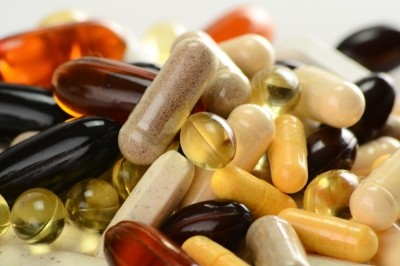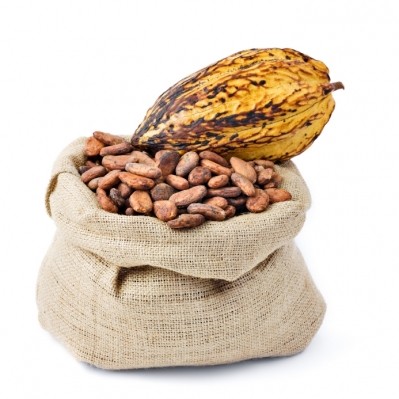EFSA HEALTH CLAIM OPINIONS - ARTICLE 13, BATCH 5 (Complete)
EFSA publishes article 13, batch 5 – winners and losers

Probiotic claims continued to be rejected under the nutrition and health claims regulation (NHCR), but there were positive opinions including:
- dietary fibres and blood cholesterol;
- cereal fibre and bowel function;
- carbohydrate-electrolyte drinks and endurance performance;
- low sodium and blood pressure;
- dietary fibre and blood glucose;
- melatonin and sleep;
- very low calorie diets and body weight.
Of the rejections, EFSA said, “they were not sufficiently specific, such as claims on “women’s health” or “mental energy”, or that they referred to food categories which were considered to be too broad, such as “fruits and vegetables”, “dairy products”, to be linked to specific effects.”
“Other claims were unfavourably assessed because they were not supported by any relevant studies in humans. Such studies are central to the establishment of a cause and effect relationship between the food or substance concerned and the beneficial health effect claimed.”
EFSA has now assessed 2723 article 13, general function health claims, and has just 35 remaining, to be published in a mini-batch 6 in July this year.
“EFSA is liaising closely with the European Commission and stands ready to provide any further support which could be required in the assessment of ‘general function’ health claims,” it said.
Initial scan
Responding from Germany, Christiane Alexander, PhD, of the consultancy analyze&realize said the trends were similar to those of previous batches.
“Again the same picture: Many negative opinions and several opinions on claims that were already assessed previously,” she said. “Characterisation was not found sufficient in several cases. This was seen previously.”
Of a positive lactose opinion, she wondered: “Reduced lactose-containing products are decreasing symptoms in lactose-intolerance people. Why is this not a nutrition content claim?”
Probiotic researcher Bruno Pot, PhD, of the Pasteur Institute in Lille, France, said the batch demonstrated the, “same old things, nothing new under the sun”.
“Still no in vitro and pre-clinical research is accepted, still there is too little explanation of statistics, still many references not available or in Japanese.”
But he added of some of the probiotic rejections: “It is interesting that the vaginal route of administration nor the naso-gastric tube are considered relevant to human nutrition. This might be logical to some point, but will surely be extended to skin probiotics for example. It will be interesting to follow what will happen with these products: Where to classify them?”
Alexander addressed the issue of target populations in a rejected eye health claim, noting, “Dry eye patients are not acceptable for extrapolation to the general population.”
Winners:
- Oat and barley grain fibre increases faecal bulk (in “high fibre” foods).
- Rye fibre benefits bowel function (in “high fibre” foods).
- Beta-glucans from oats and barley reduce post-prandial glycaemic responses when 4g of beta-glucans from oats or barley are consumed for each 30 g of available carbohydrate. Previous cholesterol opinion affirmed.
- Reduced dietary sodium intake helps maintain normal blood pressure.
- Very low calorie diets (VLCDs) can reduce body weight among obese adults in compliance with the specifications and conditions of use laid down in CODEX STAN 203-1995.
- Glycaemic carbohydrates help maintain normal brain function if 130g consumed daily.
- Sodium maintains normal muscle function but claim not approved because deficiencies leading to impaired muscle function in EU populations not demonstrated.
- Dietary intake of fats helps normal absorption of fat-soluble vitamins but claim not approved due to absence of fat deficiency in EU diets.
- Carbohydrate-electrolyte solutions enhance water absorption during exercise and maintain endurance performance (when drink contains 80-350kcal/L from carbohydrates, at least 75% of the energy from high-GI carbohydrates and 20-50mmol/L sodium).
- Reduced lactose food content may help decrease gastro-intestinal discomfort caused by lactose intake in lactose intolerant individuals.
- Melatonin helps sleep if 1mg consumed close to bedtime.
- Chitosan can help maintain normal blood LDL-cholesterol concentrations if 3g consumed daily.
- Arabinoxylan produced from wheat endosperm can reduce post-prandial glycaemic responses if 8g of arabinoxylan-rich fibre consumed per day.
- Fructose when replacing sucrose or glucose in foods or beverages can reduce post-prandial glycaemic responses.
Losers:
- Silicon does notprotect against aluminium accumulation in the brain; does not neutralise gastric acid; does not contribute to normal formation of collagen and connective tissue, maintenance of normal bone, maintenance of normal joints. The Panel said changes in normal appearance and elasticity of the skin did not indicate changes in skin function and that silicon does not contribute to normal formation of hair and nails.
- Lactobacillus rhamnosus GR-1 (ATCC 55826) in combination withLactobacillus reuteri RC-14 (ATCC 55845) do not defend against vaginal pathogens.
- Lactobacillus johnsonii NCC 533 (La1) (CNCM I-1225) does not protect the skin from UV-induced damage or improve immune defence against gastro-intestinal pathogens.
- Lactobacillus rhamnosus ATCC 53103 (LGG) does not maintain tooth mineralisation. “Gastrointestinal health” claim deemed too general.
- Omega-3 polyunsaturated fatty acids (PUFAs) do not increase calcium absorption leading to an increase in calcium retention or help maintain normal bone.
- Astaxanthin does not protectthe skin from UV-induced damage; does not defend against Helicobacter pylori; does not contribute to normal spermatogenesis and does not contribute to normal muscle function. An immunity claim deemed too general.
- Sugar-free gumsweetened with xylitol does not defend against pathogens (ie Streptococcus pneumoniae) in the middle ear. Previous sugar-free gum oral health claim opinions affirmed.
- Proanthocyanidins (PACs) from cranberry (Vaccinium macrocarponAiton) deemed ‘insufficiently’ backed as defence against bacterial pathogens in the lower urinary tract. Gum and heart claims deemed too general for NHCR.
- Boron does not maintain normal thyroid function or contribute to normal cognitive function. Prevention or treatment of prostate cancer claim not within scope of regulation.
- Formulated palm and oat oil emulsion does not help maintain or achieve normal body weight or maintain body weight after weight loss.
- Supercritical CO2 extracted blackcurrant seed oil plus vitamin E does not help maintain normal blood pressure or blood LDL-cholesterol concentrations.
- Spermidine does not contribute to normal hair growth.
- Xanthan gum does not benefit bowel function.
- Partially hydrolysed guar gum does not decrease potentially pathogenic gastro-intestinal microorganisms; alter short chain fatty acid (SCFA) production and/or pH in the gastro-intestinal tract and does not benefit bowel function or reduce gastro-intestinal discomfort.
- Rye fibre does not benefit post-prandial glycaemic responses nor help maintain normal blood LDL-cholesterol concentrations.
- Beta-hydroxy beta-methylbutyrate monohydrate (HMB) alone or in combination with alpha-ketoisocaproic acid (KIC) does not reduce muscle tissue damage during exercise; does not increase lean body mass, muscle strength, endurance performance, skeletal muscle tissue repair or speed recovery from muscle fatigue after exercise.
- Sodium alginate does not reduce post-prandial glycaemic responses without disproportionally increasing post prandial insulinaemic responses.
- Very low calorie diets (VLCDs) do not reduce the sense of hunger; reduce body fat mass while maintaining lean body mass; reduce post-prandial glycaemic responses or maintain normal blood lipid profile.
- Alpha-lipoic acid does not increase insulin sensitivity. Diabetic nervous system claim deemed a disease claim and not permissible under NHCR.
- Fructo-oligosaccharides do not decrease potentially pathogenic gastro-intestinal microorganisms.
- Linoleic acid (LA) does protect of the skin from UV-induced damage. “Molecule precursors regulating cell functions (prostaglandins, leucotrienes)” claim deemed to general for NHCR.
- Lactose does not increase calcium absorption leading to an increase in calcium retention.
- Polydextrose does not benefit bowel function; does not change short chain fatty acid (SCFA) production and/or pH in the gastro-intestinal tract; does not decrease potentially pathogenic gastro-intestinal microorganisms or reduce gastro-intestinal discomfort.
- Beta-glucans from oats and barley do notprovide a sustained increase in satiety leading to a reduction in energy intake.
- L-glutamine does not benefit a range of cognitive, gut, immune, muscular and energy conditions.
- L-ornithine does not contribute to the regulation of the urea cycle.
- Phaseolamine does not reduce body weight.
- L-theanine from Camellia sinensis(L.) Kuntze (tea) does not improve cognitive function, alleviate psychological stress, maintain normal sleep or reduce menstrual discomfort.
- Theobromine in cocoa (Theobroma cacaoL.) does not enhance mood.
- Ribose does not promote faster recovery from muscle fatigue after exercise.
- L-carnitine does not aid faster recovery from muscle fatigue after exercise; does not assist skeletal muscle tissue repair, increase endurance capacity, maintain normal blood LDL-cholesterol concentrations, contribute to normal spermatogenesis, increase L-carnitine concentrations and/or decrease free fatty acids in blood during pregnancy.
- acetyl-L-carnitine does not contribute to normal cognitive function.
- αS1-casein tryptic hydrolysate does not alleviate psychological stress.
- Casein protein hydrolysates do not aid growth or maintenance of muscle mass, increase endurance performance or speed recovery from muscle fatigue after exercise.
- Calcium phosphoryl oligosaccharides does not maintain tooth mineralisation over and above the well established role of sugar-free chewing gum on the maintenance of tooth mineralisation.
- A blend of lycopene, proanthocyanidins, vitamin C, vitamin E, selenium and beta carotene does not contribute to normal collagen formation and protection of the skin from UV-induced damage.
- Grape seeds (Vitis vinifera L.) do not improve visual adaptation to the dark.
- Ribes nigrumL. does not improve visual adaptation to the dark.
- Raw fruit ofEmblica officinalis Gaertn does not maintain normal blood LDL-cholesterol concentrations or protect DNA, proteins and lipids from oxidative damage.
- Range of foods such as ‘Mediterranean diet fruits and vegetables’, broccoli shoots, honey andherbal yeast plasmolysate deemed insufficiently characterised.
- 5-hydroxytryptophan does not provoke a sustained increase in satiety leading to a reduction in energy intake.
- Capsaicin does not contribute to the maintenance or achievement of a normal body weight; does not increase carbohydrate oxidation or contribute to normal hair growth.
- Calcium and potassium do not maintain normal acid-base balance.
- Carbohydrate-electrolyte solutions do not reduce perceived exertion/effort during exercise.
- Medium-chain triglycerides do not help reduce body weight.
- Acetic acid does not help maintain normal blood pressure.
- Sugar cane wax does not help maintain normal blood LDL or HDL-cholesterol concentrations.
- Sugar-free chewing gum with pyro- and triphosphates does not reduce calculus formation at sites which are most important for dental health.
- Gamma-linolenic acid (GLA), docosahexaenoic acid (DHA) and eicosapentaenoic acid (EPA) do not contribute to normal cognitive function or maintenance of normal bone.
- LA in combination with GLA does not reduce ocular dryness.
- Replacing sugars withintense sweeteners does not contribute to the maintenance or achievement of a normal body weight or normal blood glucose concentrations.
- Sodium phosphate does not increase endurance performance or capacity.
- Folate does not help maintain normal blood pressure.
- Chitosan does not reduce intestinal transit time, inflammation or body weight.
- L-tyrosine does not contribute to normal muscle function or increased attention.
- Sodium bicarbonate does not help maintain normal blood pressure.
- Creatine does not increase attention or improve memory.
The 73 opinions are grouped on the EFSA website here.















